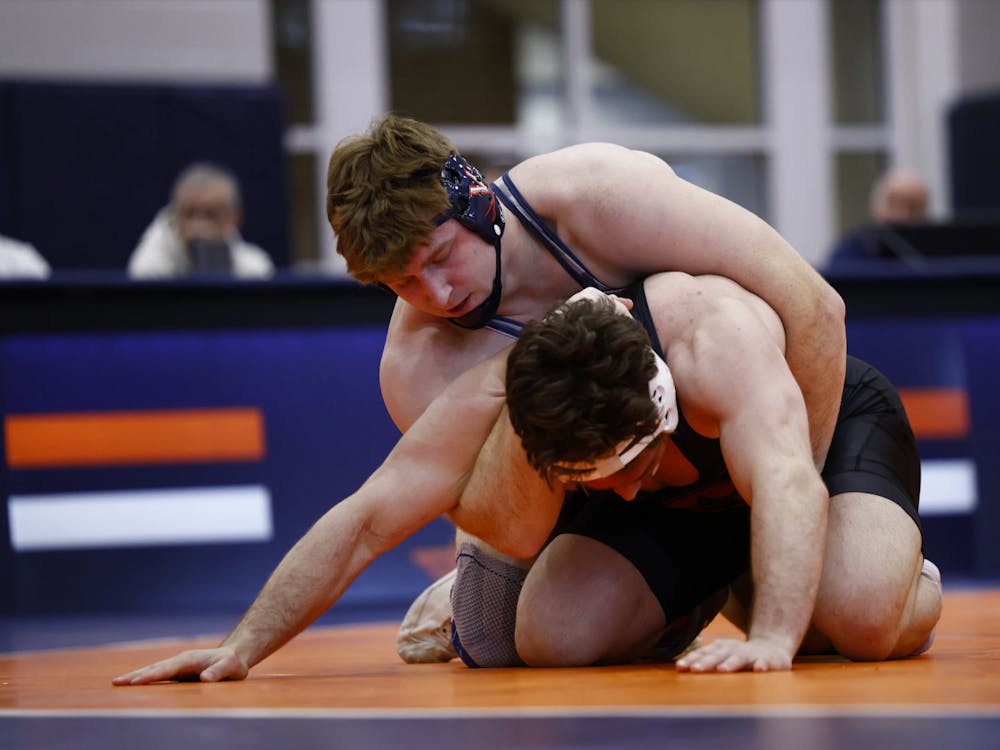While the month of February usually has been considered a lull in the sports year -- a time for enthusiasts to recover from the Super Bowl and prepare for the onset of March Madness -- February 2003 has provided considerable debate and discussion centering on two basketball players -- Michael Jordan and LeBron James.
The saga and success of James has been well documented, especially the most recent newsworthy controversy involving his suspension and subsequent reinstatement. Less than 24 hours after James scored a career-high 52 points Saturday night, Sunday night's NBA All-Star game served as a tribute and farewell to the game's all-time greatest player, His Airness. Jordan finished with 20 points to move into first place in yet another scoring category -- most career points in All-Star game history. With LeBron being touted as the "Next Jordan," I realized that there is no better way to honor MJ than by looking at what has happened to past players ordained as the "Next Michael."
Anfernee Hardaway (Drafted in 1993):
Better known as "Penny," Hardaway started off on the right track by defeating Jordan's Bulls en route to an appearance with Shaquille O'Neal and the Orlando Magic in the NBA Finals (where they were promptly swept by the Rockets). While averaging nearly 20 points and seven assists at the start of his career, Hardaway seemed to capture wider fame through his commercial endorsements, namely in the spots with Lil' Penny.Despite the early successes with Orlando and Lil' Penny, injuries plagued Hardaway, who has made little noise since relocating to Phoenix four years ago. If nothing else, Hardaway taught us all the difficult lesson that when a miniature version of yourself becomes more popular than the genuine item, gray clouds loom ahead.
Grant Hill (1994):
Before his devastating injury three years ago, everything pointed to Hill being the recipient of His Airness's torch. As the league's most proficient triple-double man since Oscar Robertson, Hill averaged 21 points, eight rebounds and seven assists in his first six years with the Detroit Pistons. He was beloved by sports fans for his genuinely impeccable nature. If not for an injury to his foot in the 2000 NBA Playoffs, Hill would have spent the prime of his career with Tracy McGrady in Orlando. A healthy Hill-McGrady tandem could have been eerily similar to the Jordan-Pippen duo of years past.
Jerry Stackhouse (1995):
He seemed to have it all going for him. The same school (UNC), the quick first step and the ability to finish at the rim. But that's where the comparisons grind to a halt. After only one standout season (two years ago with the Pistons), this year Stackhouse found himself playing second fiddle on the Wizards to the player he had been measured against his entire career. Although his 21.3 points per game career average certainly is respectable, it is not unfair to say he has not come close to the lofty expectations.
Kobe Bryant (1996):
While the road is littered with MJ wannabes who never panned out, Kobe seems poised to make the best run at living up to expectations. After a slow start to his career, Bryant has displayed the offense and -- unlike the rest of this list -- the defense to remind us of Jordan. He is not afraid to take the final shot and only continues to improve. His competitive nature is distinctly Jordan-esque. He already has three NBA championships and is attempting to do what Jordan never did -- win four in a row. Despite his indisputable talent and desire, Kobe's situation begs the question: If you are not even the most valuable player on your own team, can you be the next Jordan? I don't think so. I know Jordan needed Pippen to win a ring, but when it comes to the Lakers, it seems like Shaq is to Jordan as Kobe is to Pippen -- not vice versa.
Vince Carter (1998):
After a relatively quiet two-year career at UNC, Carter burst on to the "next Jordan" scene with his high-flying acrobatics. Whether it was dunking over Frenchman Frederic Weiss like he was the German army or going between his legs in the Slam Dunk contest, Carter's breathtaking leaps were reminiscent of Jordan's sky-walking. Moreover, Carter averaged at least 25 points a game for three consecutive seasons before injuring himself at the end of last year. The injury has lingered, limiting Carter to only 15 games (averaging 19 points) this season. Perhaps of more symbolic value than originally anticipated, Carter conceded his starting position in this year's All-Star game to Jordan.
And then there's LeBron. Only time and health will tell where he stands -- whether it's next to Hardaway and Stackhouse or if the new en voque question will be, "Who is the next LeBron?"






